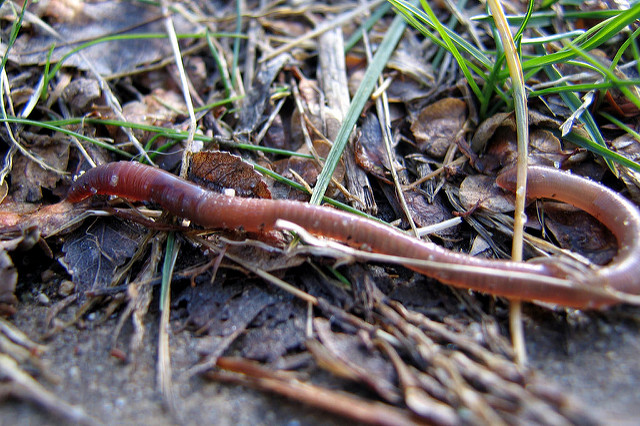
After the appearance of an Asian jumping worm population in Wisconsin, researchers performed both a soil core experiment and in-field testing for both prairie and forest ecosystems. Using sites in the Northern Temperate Lakes region, they found that the presence of two Asian earthworm species not only reduced leaf litter biomass but also enriched soil nutrient pools.
As earthworms convert organic material into more rapidly mobile forms, their presence in soil systems could lead to a flush and overall loss of nutrients. Effectively, this means that earthworm invasions could act as catalysts of ecosystem wide changes, with effects cascading up the food chain.These findings may become increasingly applicable to management decisions as climate change opens these valuable forest and prairie ecosystems to settlement by invasive species.
Photo credit: schizoform (CC BY 2.0)



